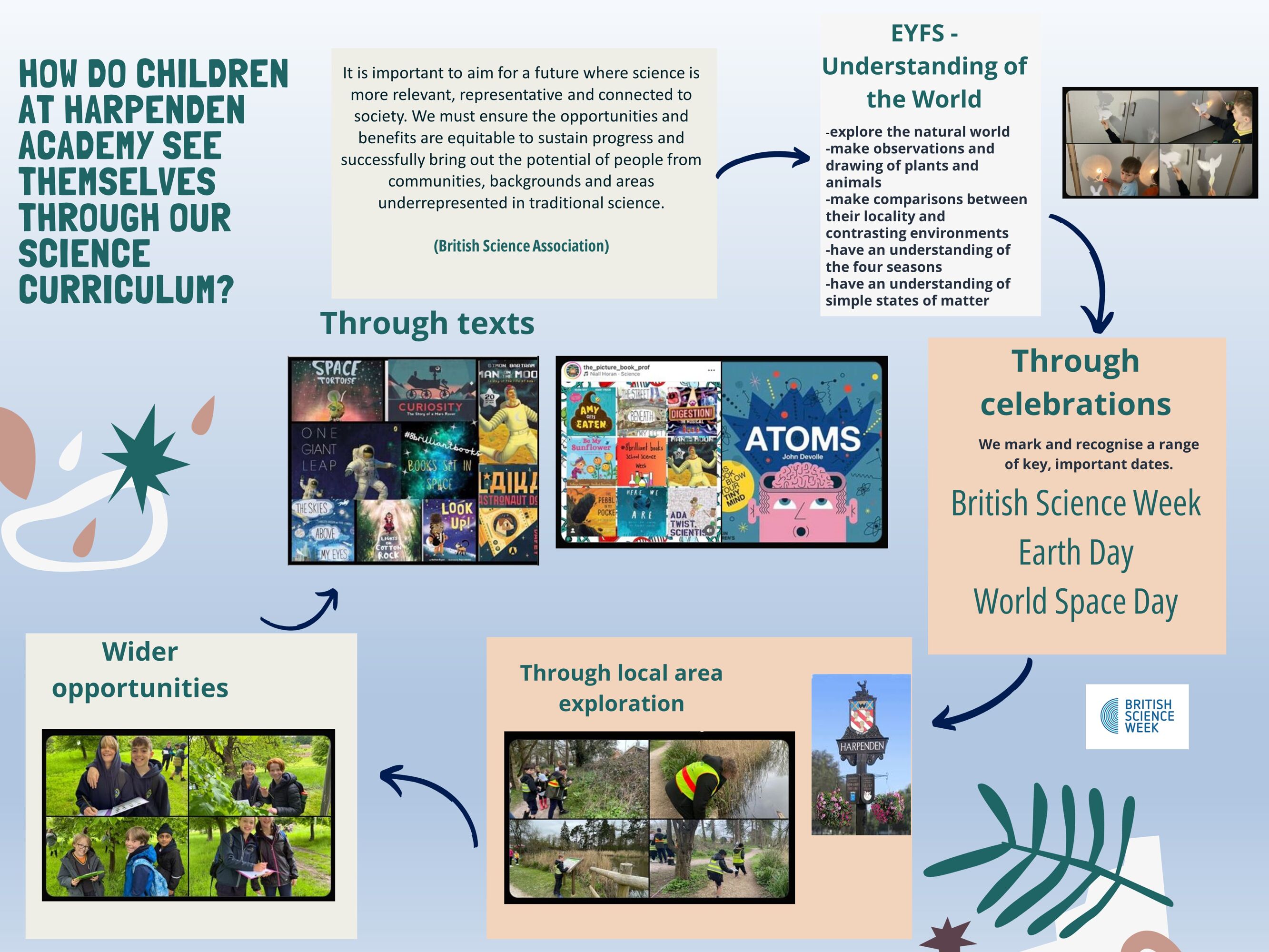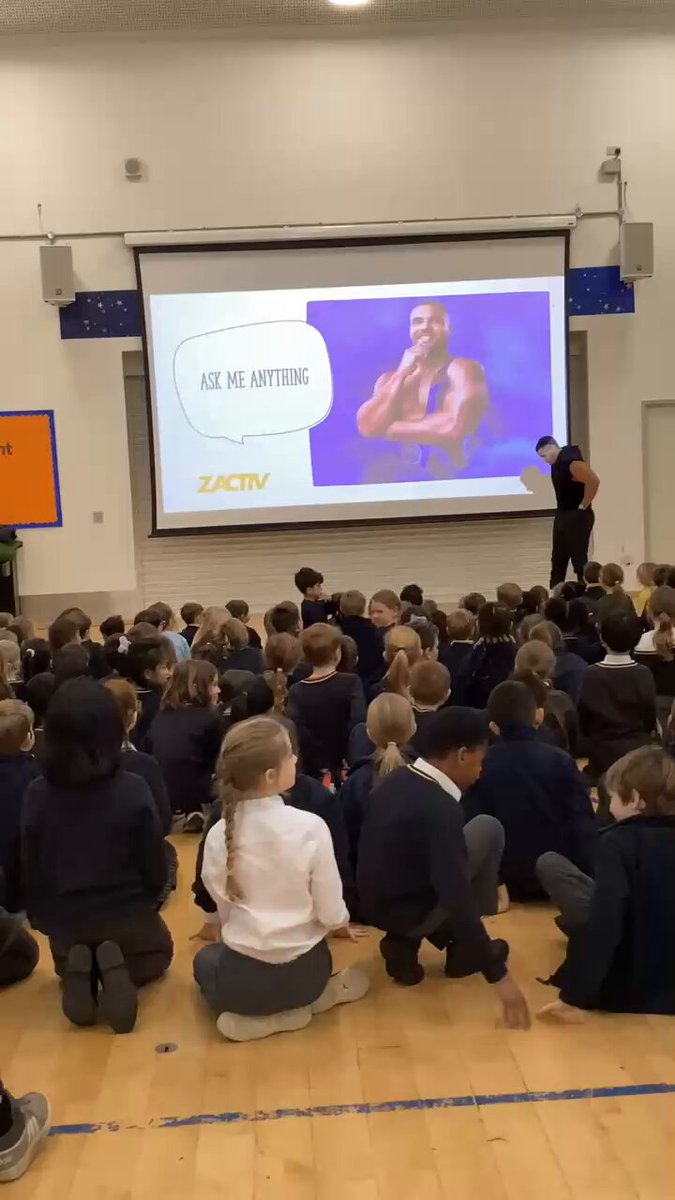Science
A high-quality science education provides the foundations for understanding the world through the specific disciplines of biology, chemistry and physics. Science has changed our lives and is vital to the world’s future prosperity, and all pupils should be taught essential aspects of the knowledge, methods, processes and uses of science. Through building up a body of key foundational knowledge and concepts, pupils should be encouraged to recognise the power of rational explanation and develop a sense of excitement and curiosity about natural phenomena. They should be encouraged to understand how science can be used to explain what is occurring, predict how things will behave, and analyse causes.
Our curriculum drivers shape our approach to teaching science so that every opportunity is taken to relate science to the needs of our pupils. Science is studied weekly in both Key Stages and cross curricular links, practical activities and learning outside the classroom are incorporated where possible and meaningful.
Science schema
The three strands of the science curriculum are: biology, physics and chemistry.
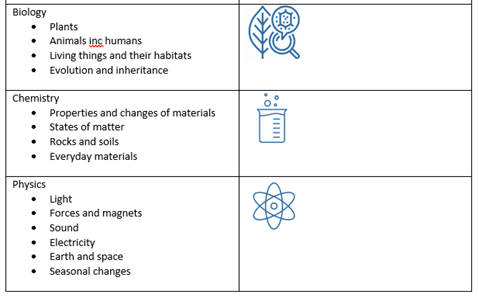
Working scientifically skills are threaded throughout each unit of work to ensure coverage.
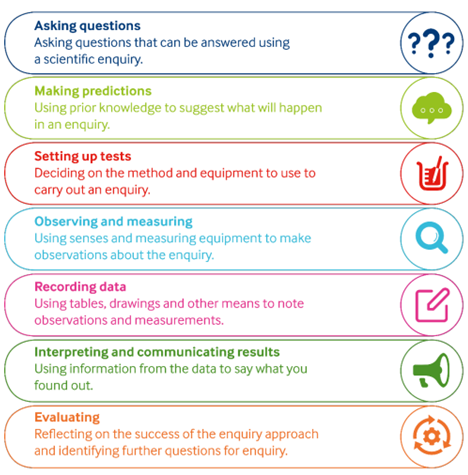
Oracy
First Hand Experiences
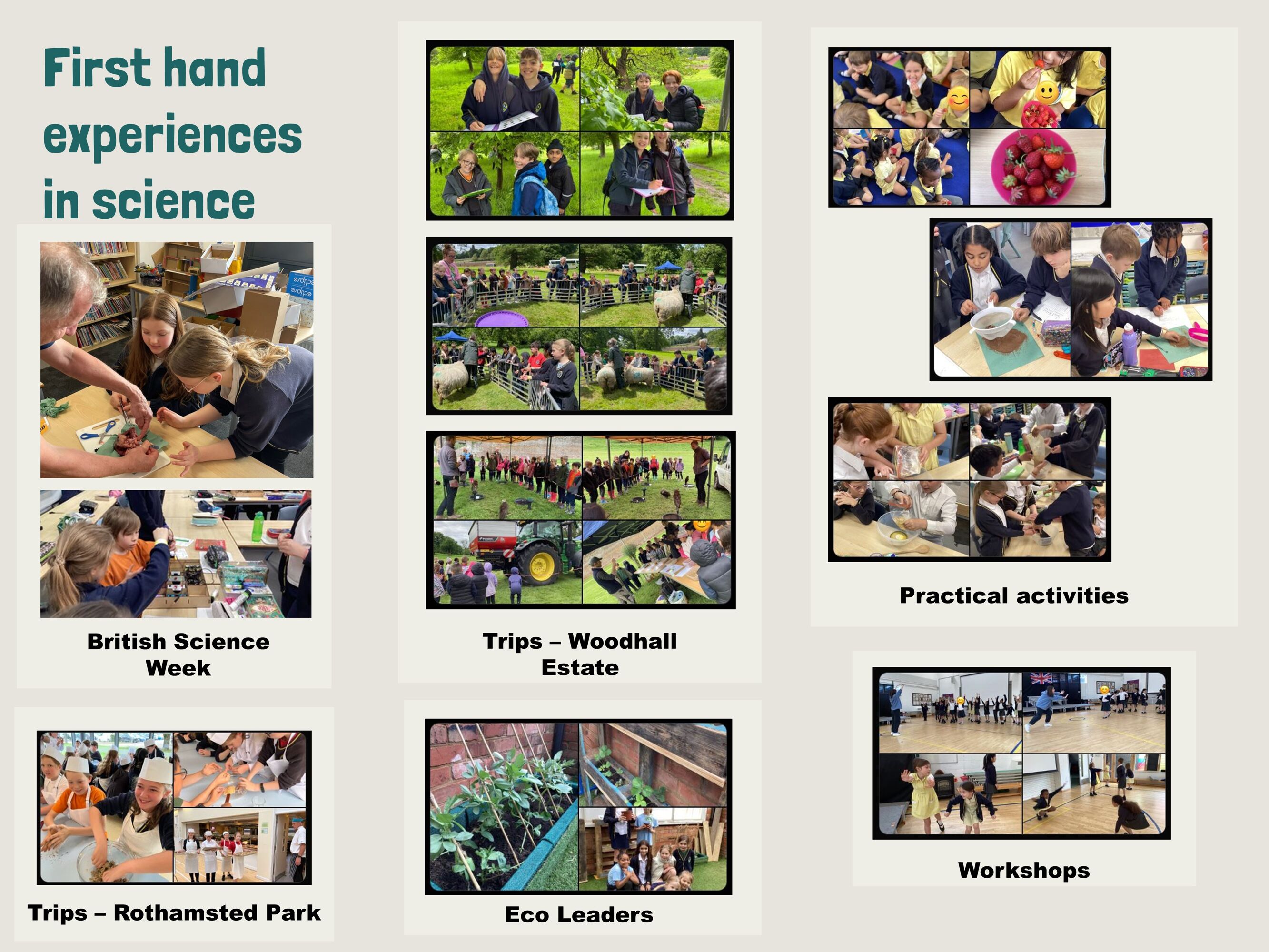
Belonging
